A Broken Land is a series of figurative paintings begun in 2023. These pictures depict interpersonal relationships and human-environment interaction. The connections are mostly fractured and play out on a landscape that matches this mood. There is one notable exception and that is Not a Care in the World. More on that below.
Like much of my work, these paintings are eclectic.
Origins
The idea for the series grew from memories of encountering deserts in America, Australia, Africa, and the Middle East. Yet, some thoughts were rooted elsewhere. For example, I was reading Don Quixote at the time I began this work. Quixote is a fantasist, intent on acts of chivalry in the name of a woman who does not exist. A symbol, possibly, for an artist who spends his life pursuing impossible dreams.
World Building
I also think it is relevant that I once worked as a theatre carpenter building sets and scenery, and also window displays for department stores.
So, having stirred the pot, I made two digital prints of imaginary scenes from a production of the ballet Don Quixote.
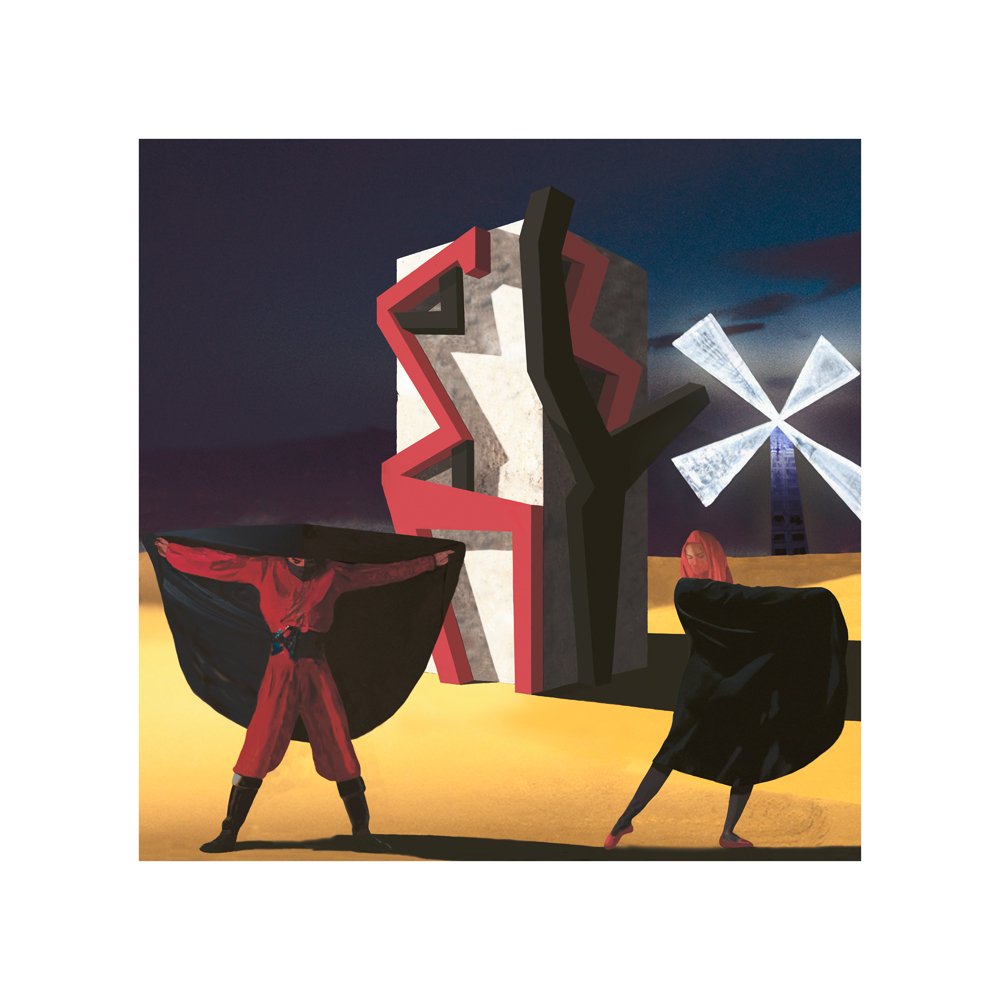
A painter is in the position of being a designer, not only for lighting and sets, but also costume, and choreography.
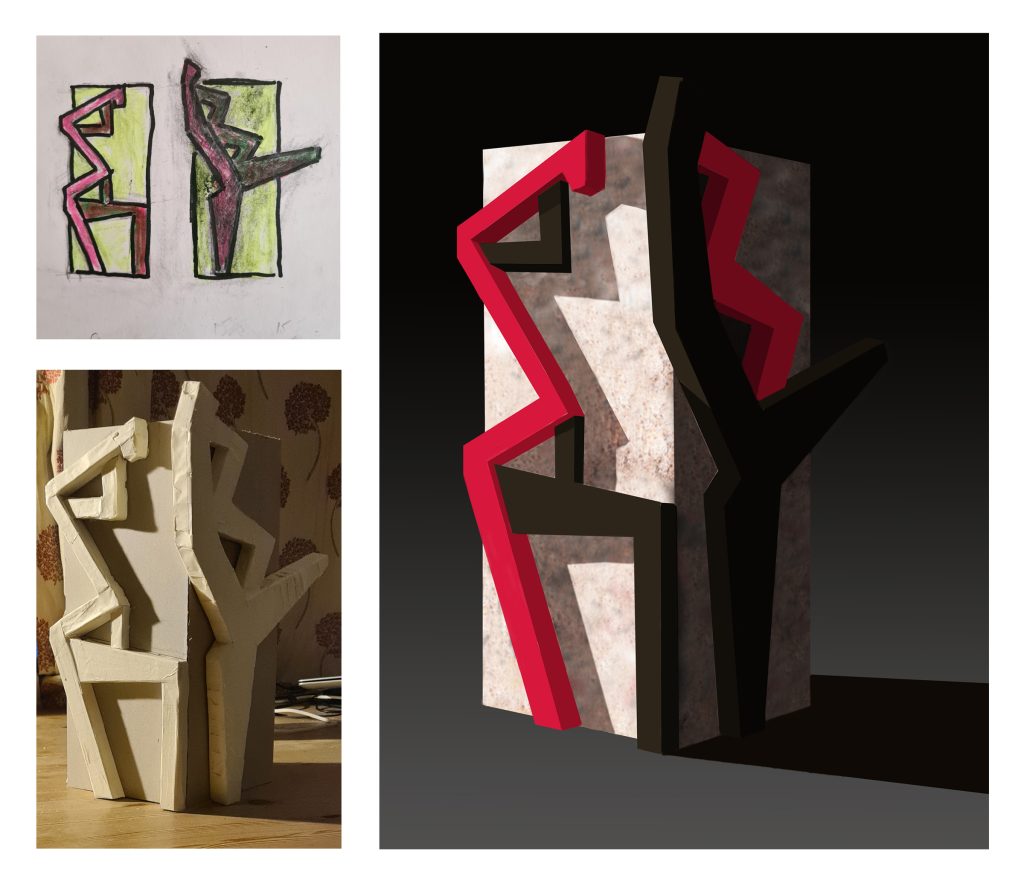
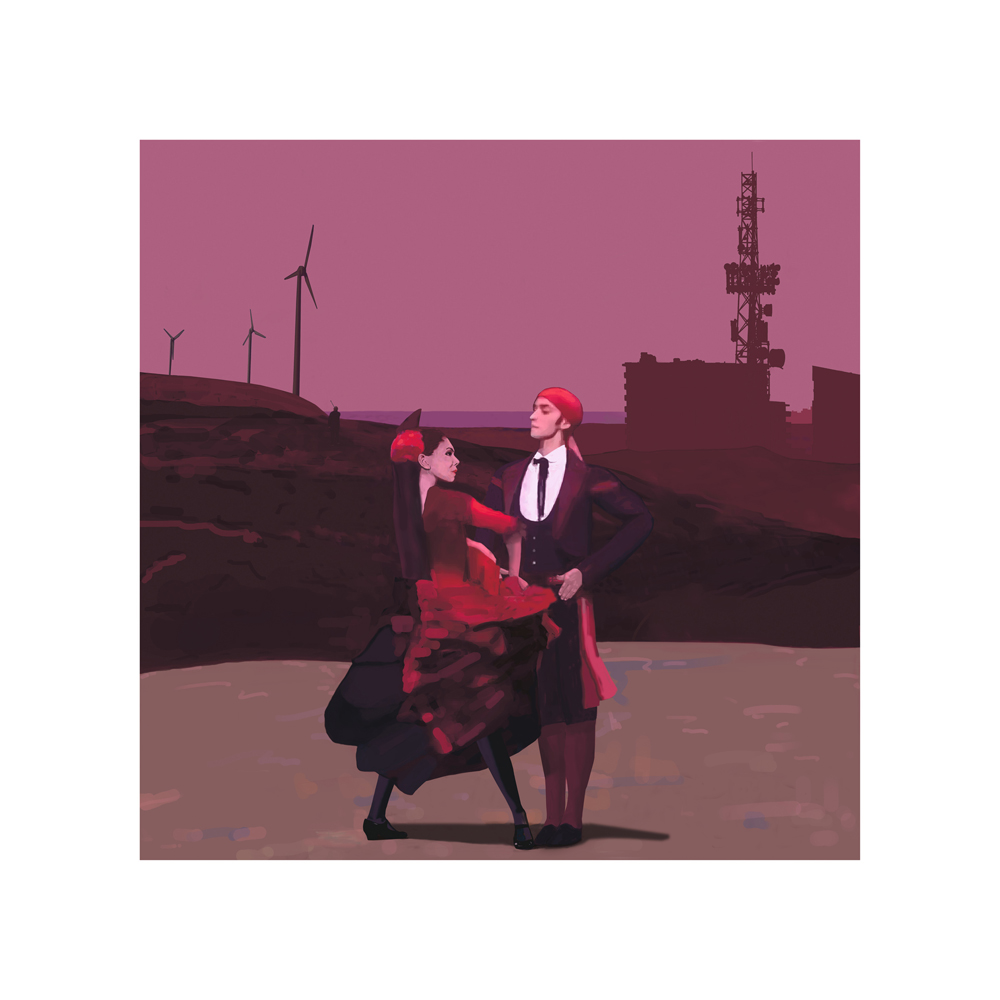
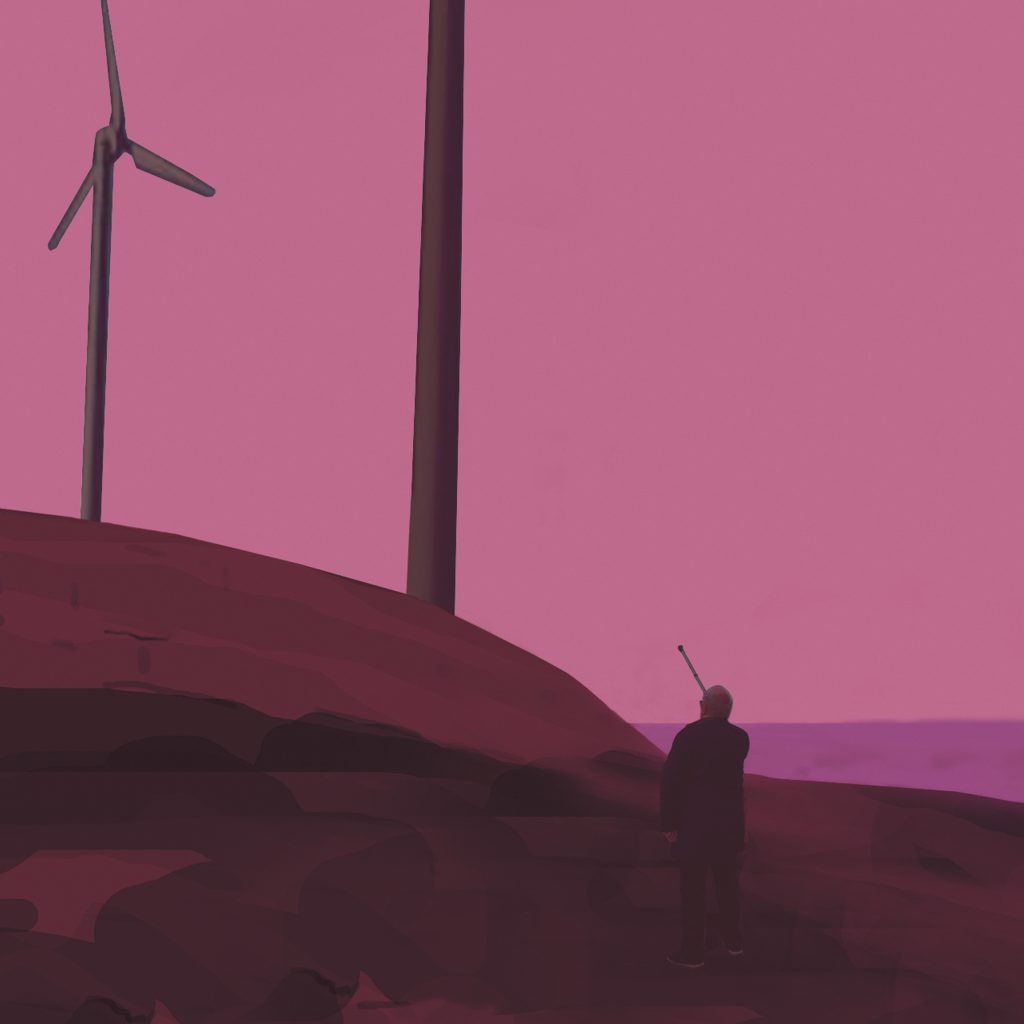
The Man in a White Suit
Enter Jake
Wishing to develop this theme of self-deception, I moved away from a theatrical staging and towards a cinematic world.
“Forget it, Jake, it’s Chinatown,”
https://en.wikipedia.org/wiki/Chinatown_(1974_film)
I decided to take a very direct cinematic reference from what I consider to be one of Hollywood’s greatest movies. Enter Jake Gittes played by Jack Nicholson in Chinatown.
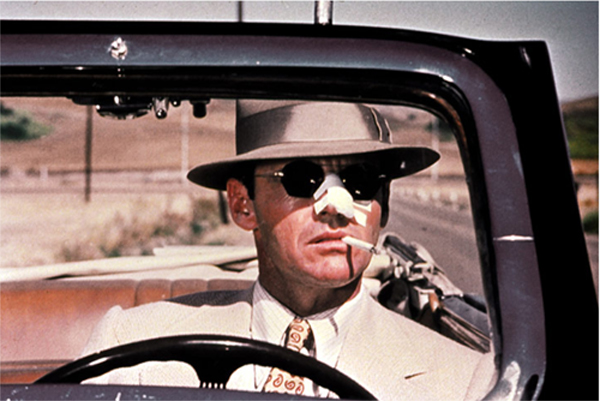
Coincidentally, or not, I’ve written five crime novels. One features a PI, the others policemen, civilian and military. All attempt to unlock mysteries, but one in particular is incapable of seeing what is directly in front him.
My pictorial protagonist offered a way forward, and by placing him in a desert setting I was able to develop visual metaphors, namely relationships between humans and the earth.
One Becomes Two
I was determined to inject a sense of mystery into these pictures. After all, I wanted them to reference cinematic drama. So the man was never enough. He needed a partner, a woman.
Is she a lover, a wife, a mistress, a friend, or even a victim? Or maybe she is calling the tune? A siren perhaps, leading Odysseus towards disaster.
Or are they both victims of hubris?
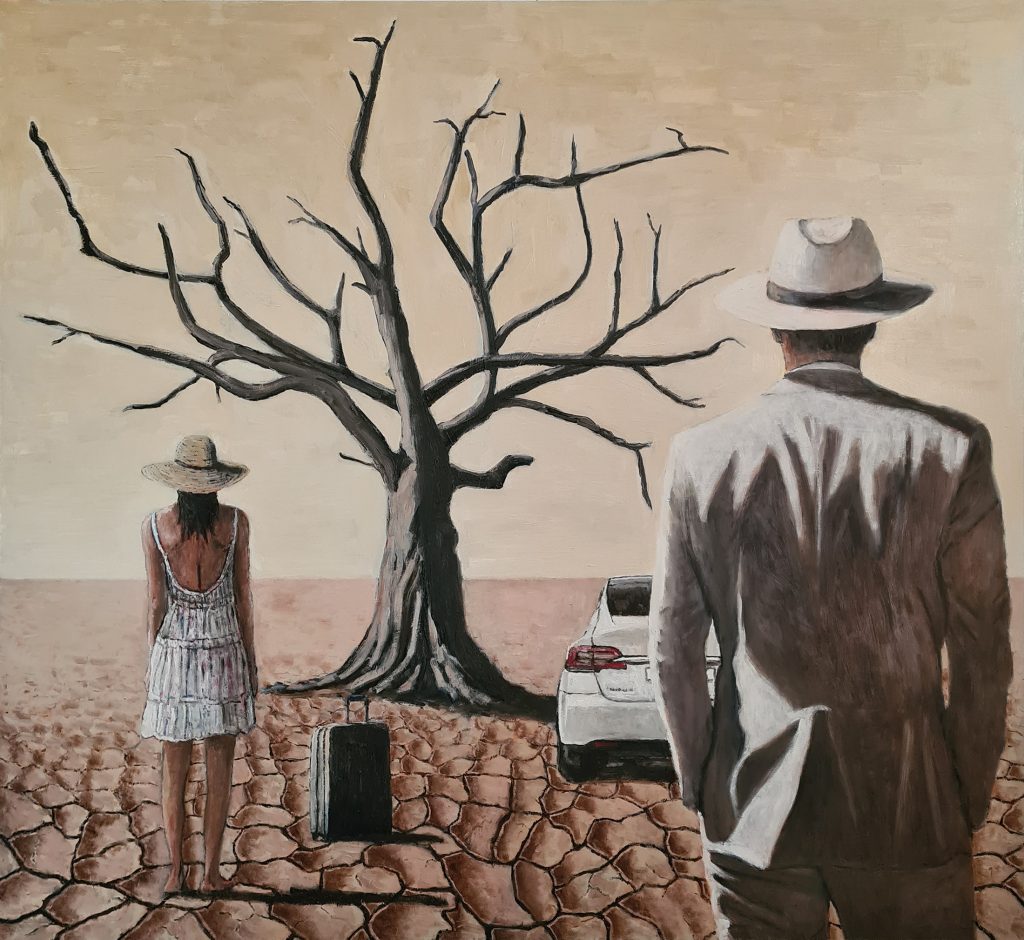
Desert
Earth, Trees, and an Ex-Vulture
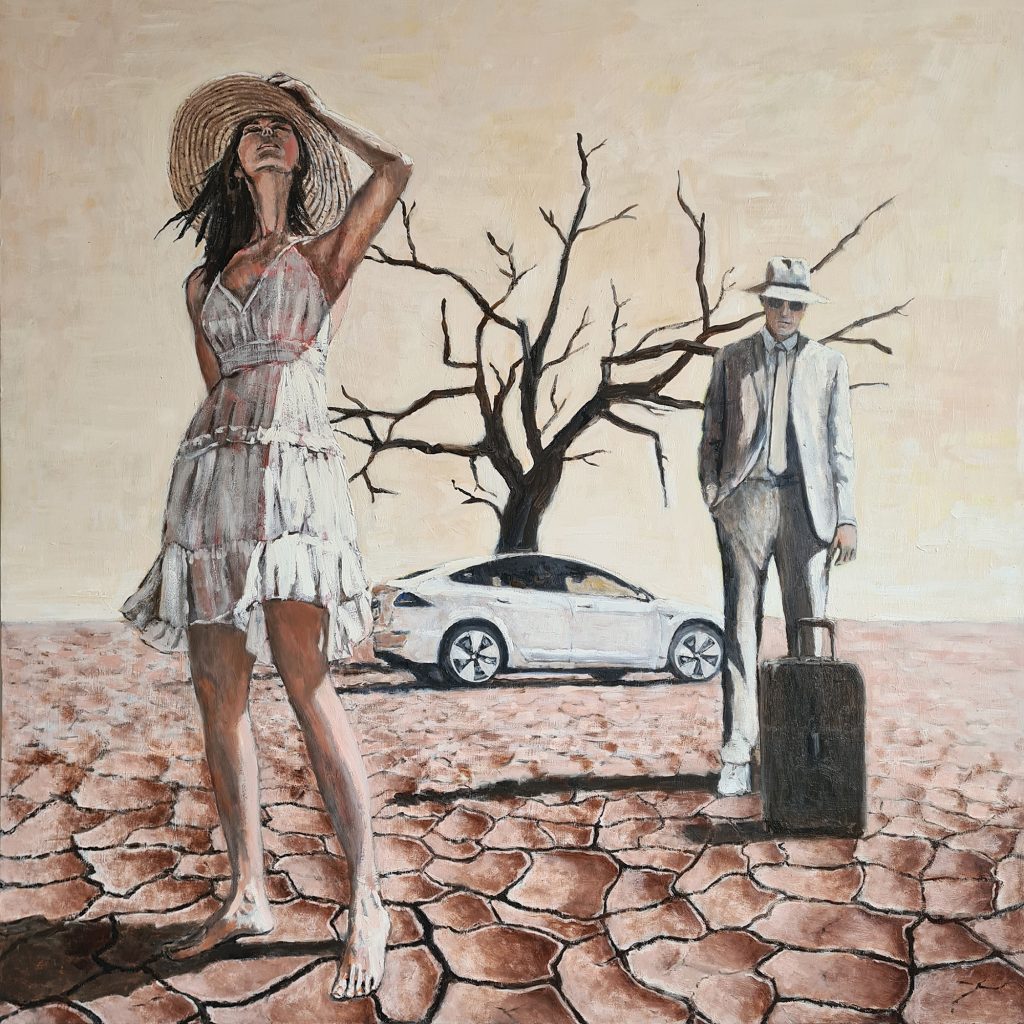
This dry and barren land, cracked and broken by drought and heat, may lead one to the conclusion that these paintings are simply a commentary on global warming. However, initially I was thinking of a metaphor for my country, hence why I also toyed with the idea of depicting car crashes.
There is a barren acacia tree in most of these paintings, but rarely other flora and fauna, although a vulture did make a guest appearance in the above painting. That bird was removed, I suspect never to return.
I have used trees before in my work where they act as symbols. For example, during the Covid pandemic I painted an oak as a symbol of strength and resilience.
Elsewhere, as a reaction to the current political and economic state of the UK, I used a blasted oak.
Ways of Seeing
Points of View
I have experimented with points-of-views (POVs), no longer satisfied with the methods used in my previous work where the viewer’s eye-line, and hence the horizon, coincides with the subject’s eye-line. The effects of breaking with this convention can be dramatic.

Tesla
Keyless or Clueless?
Humanity’s reliance on technology to solve problems, be that environmental or otherwise, is one of several themes in this series.
My characters were in need of transport, something that got them into trouble in the first place. A Tesla fitted the bill.
Now, try plugging this statement into a search engine:
Elon Musk is part of humanity’s problem rather than its solution.
While driving a Tesla into a desert is, within certain limits, possible, it is not always a great idea.

Fractured (above), has been radically changed since I first began work on it.
At the time of writing, I am trying to unite each painting in the series by fixing the positions of the acacia tree and the Tesla. Each painting moves the viewer around the space while shifting the relative positions of the man and the woman.
An Exception
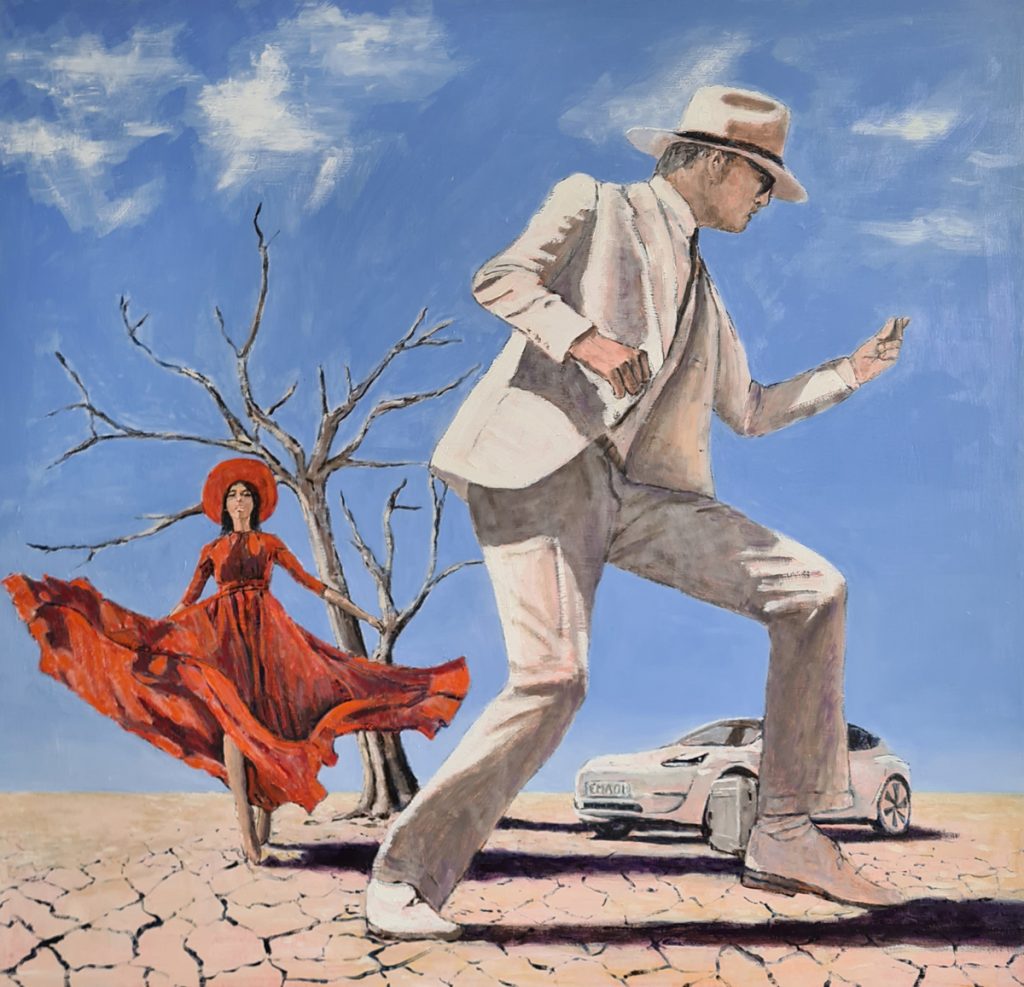
As previously stated, Not a Care in the World differs in mood from the other paintings. The characters are in sync with each other and there is no apparent animosity between them. However, their relationship with their environment is most certainly at odds.
Since finishing the painting in 2024, I have had contrasting thoughts about it. Part of me wanted to repaint it so as to match the others in mood. I’m currently undecided, so I have included it here as is.
Ambiguity and Interpretation
Does art ever provide definitive answers, and is that its purpose?
These paintings are a synthesis of many thoughts. Not all of them were apparent when I began making them. Things would gradually appear from the fog. Some would be cast aside while others, to quote something said about Chinatown’s producer, Robert Evans, stayed in the picture.
They hint at a mystery, where the narrative is fighting a battle for clarity. Viewers will have different interpretations based on their own experiences of life and art. I have no desire to pin down their exact meaning. Instead, I prefer to leave that to others. Ambiguity never goes amiss in art.
As others have said:
We don’t see things as they are; we see them as we are.
Cactus Flower
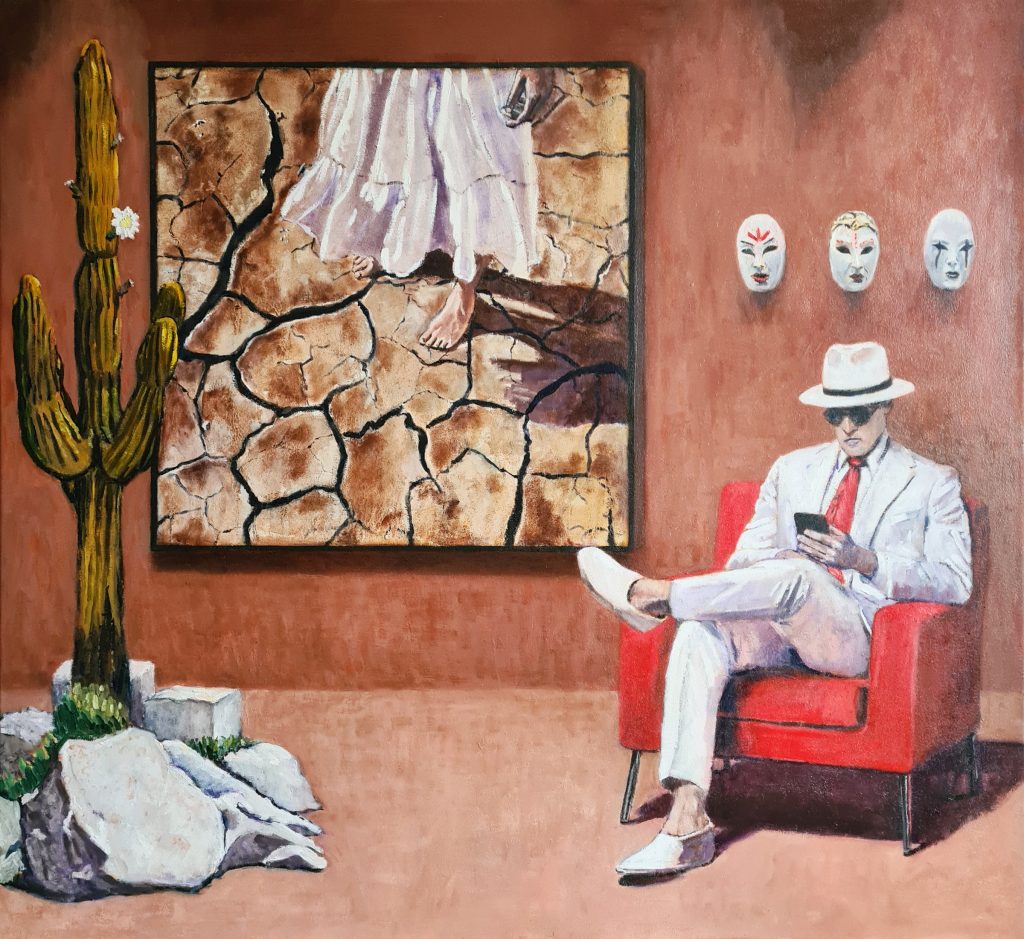
Cactus Flower was painted in late 2024 after I thought I had finished the Broken Land paintings. However, in early 2025, I revisited those other paintings. The result was a sense of dissatisfaction and a need to unify them. The woman in Cactus Flower was the key, and that meant changing every other painting. I should add that I am likely to repaint the woman’s dress to match those depicted elsewhere. In other words, I plan to shorten it.
Cactus Flower has two POVs. One places the viewer in front of the man. Another shifts the viewer to the left, in front of the painting. The former ensures a symmetry of the masks and the man’s head, whereas the latter ensures that the painting of the woman remains parallel to the picture plane.
But there is more to this painting than formal considerations. I also consider it to be a bridge between this series and The Collectors.
Questions
What part does the painting play in his life? Who is the woman? And why not show her face? And what about the masks? Is there a relationship between the woman and the masks?
Is it simply the case that the cactus represents a connection to a desert? The woman in the painting stands upon cracked and barren earth. Is this a metaphorical desert? Does it represent his life or hers? What does the flower symbolise? Life, hope, or memory?
There are other questions for viewers to consider. Or at least I hope so. But it is fair to say that memories play a significant part.
